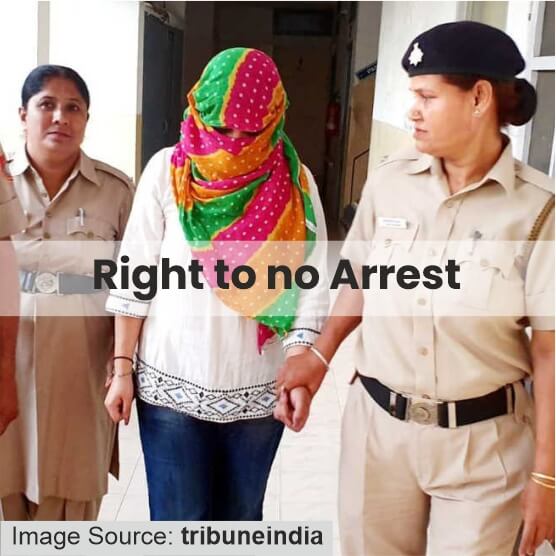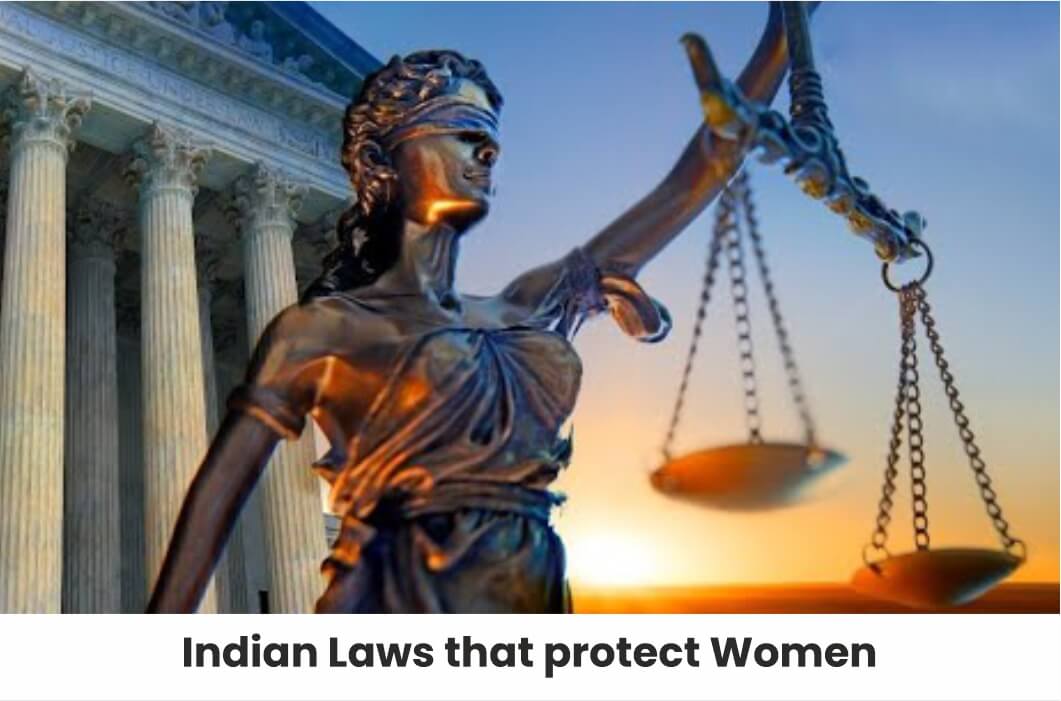In India, crimes against women occur every minute. Women are not safe in their homes, public spaces, or the workplace. Given the high amount of crimes committed against women, women must understand the laws in place to protect them.
People in the Indian patriarchal society often have a prejudiced view of women as a result of conditioning. Sexism and misogyny frequently distort people's judgment, hurting both men and women. From being ignorant to the difficulties women face to being tone-deaf to their demands, sexism and patriarchy can obscure people's judgments.
Women are socialized to feel that they are a burden from an early age. Women are treated with apathy and denied their rights in patriarchal societies. As women continue to fight sexism and misogyny in India, here are five rights that every woman has:
1. Right against Workplace Harassment:

The definition of Sexual Harassment in simple words is “any unwanted or inappropriate sexual attention. It includes touching, looks, comments, or gestures”. A key part of Sexual Harassment is that it is one-sided and unwanted. There is a great difference between Sexual Harassment and Romance and Friendship since those are mutual feelings of two people.
Sexual harassment is one of the most serious issues that young women face today in a variety of settings. We hardly go a week without being reminded of situations that should be classified as "social concerns." It is a developing problem, and everyone is doing their best to address it by implementing new regulations and initiatives. The concept of sexual harassment differs from one individual to the next, as well as from one country to the next.
The Sexual Harassment of Women at Workplace(prevention, prohibition and redressal) Act, 2013 defines sexual harassment as one or more of the following unwelcome acts or behaviour. Such as
- physical contact and advances; or
- a demand or request for sexual favours; or
- making sexually coloured remarks; or
- showing pornography; or
- any other unwelcome physical, verbal or non-verbal conduct of sexual nature;
The workplace includes any government or private sector organization, establishment, etc. It also covers unorganized and domestic workers, hospitals, any sports institute, stadium or complex, any place visited by the employee during her course of employment, etc.
Provisions:
- The Act establishes a procedure for resolving complaints. It also protects against false or malicious accusations.
- An Internal Complaints Committee is essential in every organization (ICC). Each office or branch with ten or more employees must have an ICC.
- Internal Complaints Committees have the same evidence-gathering capabilities as civil courts.
- Employers are subject to fines under the law. A fine will be imposed if the terms of the Act are not followed.
- Higher fines and the termination of a license or registration to conduct business are also possible if infractions are repeated.
2. Right against Domestic Violence:

In 2019, the most common crime encountered by Indian women was domestic abuse. The National Crime Records Bureau documented 4.05 lakh incidences of crime against women, with domestic abuse accounting for 1.26 lakh of them (NCRB).
According to a recent report, 70% of women in India are either victims of domestic abuse or have been victims of domestic violence. The Indian Penal Code, section 498(a) of 1863, was the first to define domestic abuse as cruelty perpetrated by a woman's spouse or a relative. On October 26, 2006, the Indian Parliament passed the Protection of Women Against Domestic Violence Act of 2005. This law differs from section 498(a) of the IPC in that it broadens the definition of domestic violence. Domestic violence impacts women in all aspects of their lives. They must be aware that they are protected by the Domestic Violence Act of 2005. Women who are assaulted by their parents, brothers, spouses, or live-in partners are protected by this law.
3.Right to Anonymity:

There are various legislative rules that demand the protection of the identities of survivors and victims of crimes, some of which are unique to children and others that are specific to crimes against women.
The Protection of Children from Sexual Offences (POCSO) Act forbids the publication of a child's identification, "including his name, residence, portrait, family details, school, neighborhood, or any other particulars that may lead to disclosure of the child's identity," according to Section 23(2). Violation of this act is a criminal offense that carries a penalty of six months to one year in prison and a fine.
The Juvenile Justice Act bans the revelation of a child's "name, address, or school, or any other detail" that could be used to identify a child who has been the victim of a crime or even a child who has been suspected of committing a crime, as well as children who have witnessed a crime.
Violating this prohibition is also a criminal offense, punishable with up to six months' imprisonment, and/or a fine. Both these prohibitions seek to prevent the disclosure of any information which would reveal the identity of a child victim, which includes photos or details about their parents.
Section 228A of the Indian Penal Code 1860 (IPC) prohibits the printing or publishing of the name or any other detail which discloses the identity of a victim of rape (section 376, 376 A-E of the IPC). This applies to both adults and minors.
This prohibition can be waived by the survivor or, in the case of a deceased (or incompetent) victim, the victim's family, in writing to a designated welfare institution or other authority. If someone prints or publishes information that breaches this clause, they are committing a criminal offense known as an offense against public justice, which is punishable by up to two years in prison. The legislators intended for the victims of such crimes to remain anonymous so that they would not be subjected to hostile prejudice or harassment in the future. In society, a rape survivor would endure hostile prejudice and social exclusion. Such victims will have a tough time finding work, getting married, and integrating into society as normal human beings. Because our criminal justice system lacks an adequate witness protection programme, the necessity to shield the victim and conceal her identity is considerably greater.
4. Right to Maternity Benefits

The Maternity Benefit Act of 1961 protects women's employment during pregnancy and entitles them to a fully paid leave of absence to care for their children. The 2017 changes aim to extend maternity leave to 26 weeks in all workplaces, including the private sector. The Act covers all establishments, including factories, mines, plantations, government establishments, stores, and establishments subject to applicable legislation, as well as any other establishment that the Central Government may notify.
Moms adopting a child under the age of three months from the date of adoption, as well as "commissioning mothers," will be eligible for 12-weeks maternity leave. The commissioning mother is a biological mother who utilizes her egg to make an embryo that will be implanted in another woman.
The Maternity Benefit Amendment Act also includes an enabling clause for women to "work from home," which can be used after the 26-week leave term has expired. Women employees may be able to take advantage of this benefit on mutually agreed-upon terms depending on the nature of their work. According to the Act, a woman must have worked as an employee at an establishment for at least 80 days in the previous 12 months to be eligible for maternity benefits. The average daily earnings for the period of actual absence is used to calculate payment during the leave period.
5. Right to No Arrest

The mode of arrest is defined in Section 46 of the Code of Criminal Procedure, 1973. An arrest is defined as the physical seizure or touching of a person's body with the intent of detaining him. The mere pronouncement of the words "arrest" does not constitute an arrest unless the individual being arrested complies with the procedure and follows the Arresting Officer. The legislature's primary goal is to protect the woman during her detention. Section 46 of the Criminal Procedure Code of 1973 and Section 46(4) (amended under Section 6) of the Code of Criminal Procedure (Amendment) Act, 2005 define the basic procedure for arresting a woman. Section 46(4) states that no women shall be arrested after sunset and before sunrise unless exceptional circumstances exist and that if such exceptional circumstances exist, the woman police officer should obtain the prior permission of a first-class Judicial Magistrate within whose local jurisdiction the offense is committed or the arrest is to be made by filing a written report. Many women would have been victims of social or physical harassment, abuses, exploitation, and a variety of other afflictions if these areas had not existed.
